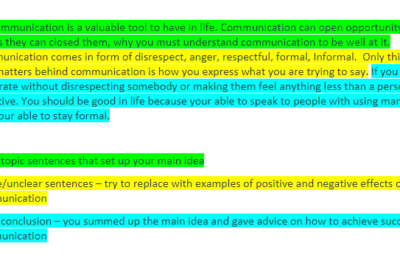I’m always torn over the decision to pre-teach vocabulary due to the time required. There’s an argument that if you choose only the words you need to pre-teach, and the method that suits them best, it won’t take too much time. For example, the 7-step method proposed by Calderon and Minaya-Rowe (2011) doesn’t involve students looking up definitions, drawing pictures, or even writing anything down (until later when the words can be used naturally in a written summary-type assignment). This is definitely a plus in terms of time-saving. There’s also Marzano’s (2007) 6-step method, which does involve students recording the word. Finally, there are intensive methods like Frayer model, best suited for Tier-3 words that students need to know a lot about, such as climate change or industrial revolution. For these, students will need to know precise definitions, examples, and so on.
However, are these methods really pre-teaching? And what even is the purpose of pre-teaching words? Really, it’s to avoid unknown words hindering their comprehension (Beck, McKeown & Kucan, 2008), not to ensure they understand every word, and not even to help the learner acquire the word (which would take repeated exposures, recalls, and such). Assuming this purpose, sometimes only a few words need pre-teaching, and sometimes there isn’t a need to pre-teach anything!
On the other hand, in order to expand their vocabulary to access grade-level content, tier-2 academic words (those that can be “recycled” and will be encountered across academic subjects) should be directly and explicitly taught (Calderon & Tartaglia, 2023). If they’re reading an entire article about sustainable materials, for example, they should probably learn the word “sustainable” in advance. However, if the article contains the word “exceptionally,” it probably just modifies an adjective and isn’t necessary to understand the main points. The more words that can be taught this way to learners, it is reasoned, the more quickly they will be able to approach a level of understanding 90-95% of the words in a text, a percentage frequently cited as necessary for unassisted comprehension (Schmitt, Jiang, & Grabe, 2011).
However, if we actually want learners to acquire these words, not just briefly learn them for comprehension of the day’s text, it isn’t really “pre-teaching,” according to Kerr (2020). First, it’s been claimed that if a word is useful enough and likely to be encountered often, it probably warrants more in-depth instruction. It could be a whole vocabulary-focused lesson, in other words, where the students learn various parts of speech, collocations, affixes, and practice using each word. Second, if the aim of is actually to help learners acquire the words, and not just aid comprehension of the day’s text, teachers probably need to follow up with more vocabulary work post-reading. Thus, this can’t really be called pre-teaching. I think he has a very good point.
So is pre-teaching even necessary? Several educators have recently advocated for a more relaxed, reduced approach to pre-teaching to promote greater agency among students (Chong, 2017; Chowdhury & Ara, 2021). By not pre-teaching, we help learners become comfortable with not understanding every word and guessing meaning from context. We also prevent the anxiety that students might feel about needing to learn the “magic 10 words” that the teacher presented, especially if they’re going to be on a quiz. Both of these help students focus on comprehension, language acquisition over memorization, and meaning making from the text.
Tucker (2023) suggests a “pre-questioning” approach as an alternative, in order for students to focus on ideas and comprehension rather than individual words. He cites a dissertation by (Cowell (2012) to emphasize that learners, through repeated exposure and use, can eventually learn any words that would have been pre-taught anyway.
Overall, aiming to give students a “rough idea” of the text prior to reading seems to be a balanced approach that could be effective. It will also cut down on teacher-centeredness, allow students to jump into the reading more quickly, and offer an experience to students that can promote their autonomy. Teaching words that students find they need to know after an initial reading could also be an effective method.
References:
Beck, I.L., McKeown, M.G. & Kucan, L. (2008). Creating Robust Vocabulary: Frequently asked questions and extended examples. The Guilford Press: NY.
Calderon, M. E. & Minaya-Rowe, L. (2011). Preventing Long-term ELs: Transforming Schools to Meet Core Standards. Corwin.
Calderon, M. E. & Tartaglia, L. (2023). Cultivating Competence in English Learners: Integrating Social-Emotional Learning with Language and Literacy. Solution Tree Press.
Chong, C. S. (2017, October 17). The Dangers of Pre-Teaching. Modern English Teacher. https://www.modernenglishteacher.com/the-dangers-of-pre-teaching
Chowdhury, Takad Ahmed, and Arjumand Ara. “Pre-Teaching Vocabulary in Teaching Reading Skill: A Hindrance to Learner Autonomy?” Indonesian TESOL Journal, vol. 3, no. 2, 2021, pp. 123–132., https://doi.org/10.24256/itj.v3i2.1818.
Cowell, L. S. (2012). Pre-Teaching Vocabulary to Improve Comprehension of a Narrative Text. Doctoral dissertation, University of Auburn. https://etd.auburn.edu/bitstream/handle/10415/3423/Cowell%20Final.pdf;sequence=2.
Kerr, P. (2020, October 9). Questions about pre-teaching vocabulary (PTV). Adaptive Learning in ELT. https://adaptivelearninginelt.wordpress.com/2020/10/09/questions-about-pre-teaching-vocabulary-ptv/
Marzano, R. J. (2007). The art and science of teaching: A comprehensive framework for effective instruction. Association for Supervision and Curriculum Development.
Schmitt, N., Jiang, X., & Grabe, W. (2011). The percentage of words known in a text and reading comprehension. The Modern Language Journal, 95(1), 26–43. https://doi.org/10.1111/j.1540-4781.2011.01146.x
